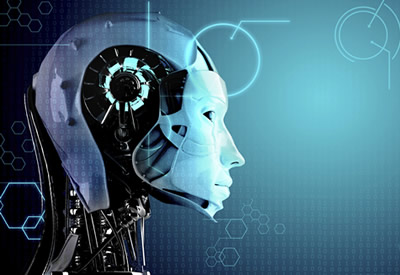Introduction
In an era marked by pressing global challenges, advancements in technology have become essential for finding innovative solutions. This article explores the significance of artificial intelligence (AI) as the most important new technology, its potential to revolutionize various sectors, and how it offers unprecedented opportunities for tackling critical global issues.
Heading 1: Understanding Artificial Intelligence (AI) (150 words) Artificial Intelligence commonly known as AI, refers to the development of computer systems capable of performing tasks that typically require human intelligence. Through machine learning algorithms and data analysis.AI has the ability to understand, reason, and learn from patterns, making it an indispensable tool in solving complex problems across diverse fields. AI systems can process vast amounts of data, identify trends, and generate insights that aid decision-making processes.
Heading 2: Addressing Global Challenges
- Healthcare: AI has the potential to revolutionize healthcare by improving diagnostics, personalized treatments, and drug discovery.
- Climate Change: AI can contribute to combating climate change through enhanced data analysis and predictive modeling. It enables the optimization of energy consumption, supports sustainable urban planning, and facilitates the development of renewable energy sources.
- Education: AI-powered platforms can personalize learning experiences, adapt content to individual needs, and provide equal educational opportunities. AI also enables efficient and timely feedback, aiding educators in designing personalized curricula and improving student outcomes.
- Poverty and Inequality: AI can be instrumental in addressing socioeconomic disparities. By analyzing economic data, AI algorithms can identify areas requiring intervention, recommend policy changes, and help governments allocate resources effectively.
Privacy concerns, algorithmic biases, and the impact on job markets are some of the challenges that need careful management. Transparent and accountable AI systems, regulations, and interdisciplinary collaborations are essential to ensure equitable and responsible use of this technology.

Increased investment in research and development, along with cross-sector partnerships, can accelerate AI innovations and their deployment in critical sectors. Collaboration also promotes knowledge-sharing, data sharing, and the development of robust ethical frameworks.
In an era marked by complex global issues, technological advancements have emerged as vital tools for addressing and solving pressing world problems. Among these technologies, one stands out as a trans formative force: blockchain. Initially associated with cryptocurrencies, blockchain has evolved into a versatile and powerful tool capable of reshaping industries and revolutionizing solutions to various global challenges. This article explores the profound impact of blockchain technology and highlights its potential to address some of the world’s most critical issues.
- Blockchain: A Brief Overview:
Blockchain technology is a decentralized, transparent, and immutable digital ledger that enables secure and efficient transactions and data management. Its foundation lies in the creation of a decentralized network, where information is recorded in blocks, forming an unalterable chain of data. This decentralized structure eliminates the need for intermediaries, enhances security, and ensures transparency.
- Advancing Financial Inclusion:
One of the most significant challenges faced by millions worldwide is the lack of access to financial services. Traditional banking systems often exclude marginalized populations due to high costs, bureaucracy, and geographical limitations. However, blockchain-based financial systems have the potential to bridge this gap. By enabling peer-to-peer transactions, micro financing, and decentralized lending platforms, blockchain technology empowers individuals, especially in developing regions, to access and utilize financial services, fostering economic growth and reducing inequality.
- Enhancing Supply Chain Efficiency:
Global supply chains suffer from several inefficiencies, such as lack of transparency, counterfeit products, and difficulty in tracking and verifying goods. Blockchain technology offers a promising solution by creating an immutable and transparent record of every transaction and movement in the supply chain. By leveraging blockchain, stakeholders can ensure traceability, authenticate products, and combat issues like counterfeiting and unethical practices. This technology can transform industries such as food production, pharmaceuticals, and luxury goods, guaranteeing quality, safety, and sustainability.
- Revolutionizing Governance and Voting Systems:
Governments worldwide face challenges related to transparency, corruption, and trust in the electoral process. Blockchain technology offers a decentralized and tamper-proof platform for secure voting and governance. By utilizing blockchain-based voting systems, governments can ensure transparency, minimize fraud, and restore trust in democratic processes. Furthermore, blockchain can facilitate efficient and secure management of public records, reducing bureaucracy and enhancing the delivery of public services.
- Enabling Renewable Energy and Sustainability:
With the increasing urgency to combat climate change, renewable energy sources are crucial for achieving a sustainable future. Blockchain technology plays a significant role in facilitating the transition to renewable energy by enabling peer-to-peer energy trading, decentralized grid management, and transparent carbon credit markets. By utilizing blockchain-based systems, individuals and organizations can participate in a sustainable energy ecosystem, accelerating the adoption of renewable energy sources and reducing carbon emissions.
- Empowering Decentralized Digital Identities:
Many individuals worldwide lack secure and verifiable identification documents, hindering their access to essential services, education, and healthcare. Blockchain technology enables the creation of decentralized digital identities, empowering individuals with control over their personal information. These digital identities can streamline administrative processes, improve access to services, and protect privacy rights, particularly for marginalized communities and refugees.
Conclusion (100 words): Artificial Intelligence stands out as the most important new technology for addressing global challenges. Its potential to transform healthcare, combat climate change, revolutionize education, and alleviate poverty make it a powerful tool for progress. However, ethical considerations and challenges, such as privacy and algorithmic biases, must be addressed to ensure responsible and equitable use. Through collaboration, investment, and responsible deployment, AI can play a pivotal role in shaping a brighter future by providing innovative solutions to the world’s most pressing problems.



